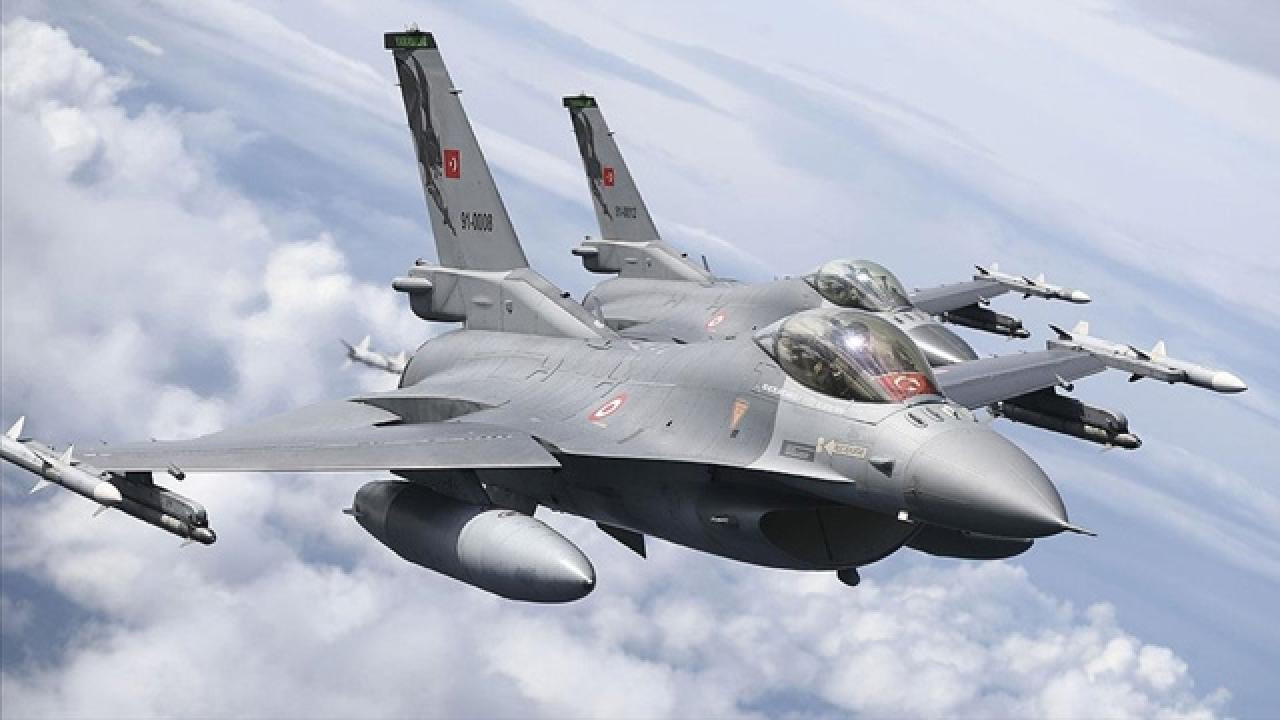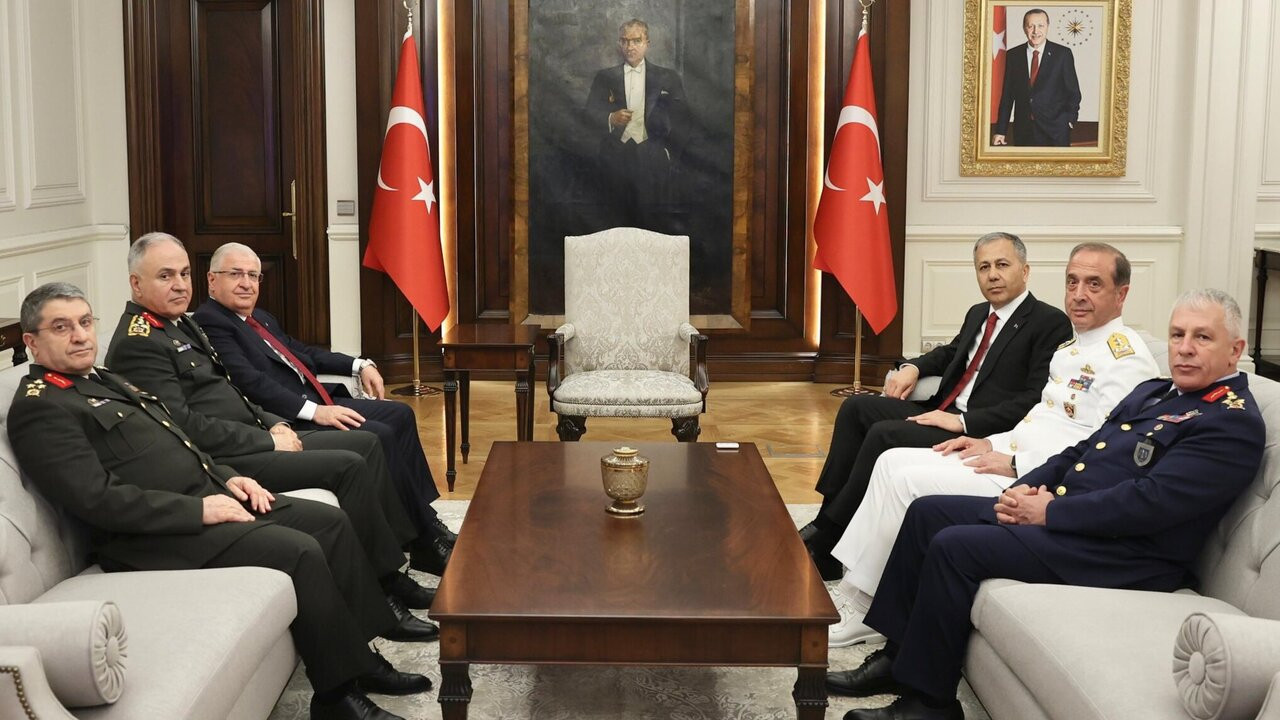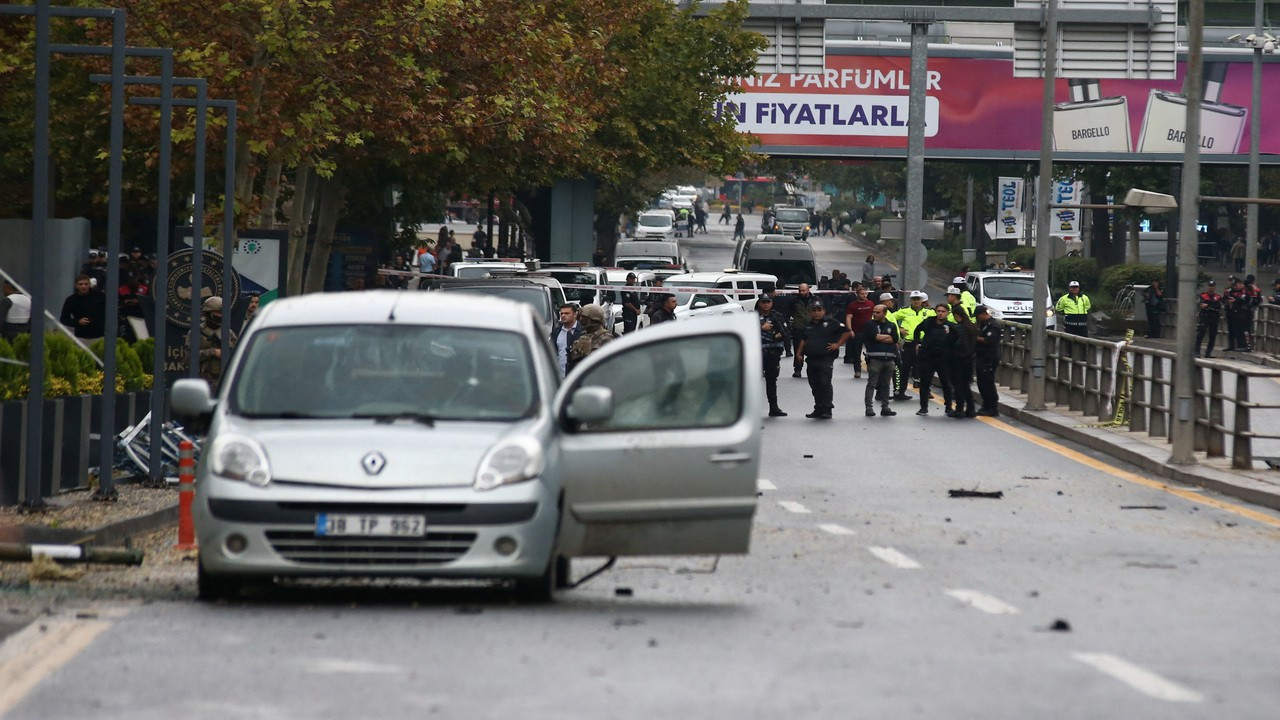US jet downs Turkish drone in Syria, Pentagon confirms
The United States on Oct. 5 shot down an armed Turkish drone operating in proximity to its troops in Syria, marking the first such incident involving its NATO ally Turkey, according to the Pentagon's statement. Prior to the statement, Turkish sources had declined that the drone belonged to Turkey.
Reuters & Duvar English
The United States on Oct. 5 shot down an armed Turkish drone that was operating near its troops in Syria, the Pentagon said, the first time Washington has brought down an aircraft of NATO ally Turkey.
A Turkish defense ministry official said the drone that was shot down did not belong to the Turkish armed forces, but did not say whose property it was.
Turkey's National Intelligence Agency carried out strikes in Syria against Kurdish militant targets after a bomb attack in Ankara last weekend, a Turkish security source said on Oct. 5.
During Oct. 5 night, Turkish military air strikes destroyed 30 Kurdish militant targets in northern Syria, including an oil well, a storage facility and shelters, and "neutralized" many militants, the Turkish defense ministry said.
Pentagon spokesman Brigadier General Pat Ryder said Turkish drones had been seen carrying out airstrikes Hasakah, Syria on Oct. 5 morning about one km away from U.S. troops.
A few hours later a Turkish drone came within less than a half a kilometer (0.3 miles) of U.S. troops and was deemed a threat and shot down by F-16 aircraft.
"We have no indication that the Turkey was intentionally targeting U.S. forces," Ryder told reporters.
U.S. Defense Secretary Lloyd Austin spoke with his Turkish counterpart after the incident, a call Ryder said was "fruitful."
The incident comes at a delicate moment for U.S.-Turkish relations, with the United States hoping Turkey will ratify NATO membership for Sweden.
While the United States has not shot down a Turkish aircraft before, tensions have flared and there have been close calls. In 2019, U.S. troops in northern Syria came under artillery fire from Turkish positions.
Turkey strikes in Syria
U.S.-allied Syrian Kurdish forces said Turkish attacks had killed eight people in an escalation prompted by the bomb attack in Ankara by Kurdish militants.
U.S. support for Kurdish forces in northern Syria has long caused tension with Turkey, which views them as a wing of the outlawed Kurdistan Workers' Party (PKK). That group claimed responsibility for Sunday's attack in Ankara near government buildings.
On Wednesday, Turkey said the two attackers had come from Syria. The bombing killed both attackers and wounded two police officers. The Syrian Democratic Forces, the Kurdish-led force backed by the United States, denied that the bombers had passed through its territory.
On Oct. 5, a Turkish defense ministry official said a ground operation into Syria was one option that Turkey could consider. Turkey has mounted several previous incursions into northern Syria against the Syrian Kurdish YPG group.
"Our only goal is to eliminate the terrorist organizations that pose a threat to Turkey. A ground operation is one of the options to eliminate this threat, but it is not the only option for us," the official said.
Security forces in northeastern Syria said Turkey launched a series of attacks on Thursday with more than 15 drones entering the region's airspace and hitting targets including infrastructure and gas and oil stations. In a statement, the security forces said Turkish attacks killed six members of the internal security forces in northeastern Syria, and two civilians in two separate strikes.
Turkey has redoubled its operations targeting the outlawed PKK, by carrying out air strikes in northern Iraq.
Turkish officials said any infrastructure and energy facilities in Iraq and Syria controlled by the PKK, as well as People's Protection Units (YPG), were legitimate military targets.
"The PKK and the YPG are the same terrorist organization, they are our legitimate target everywhere. Turkey conducted operations whenever and wherever necessary in the past, and these operations will continue if needed again," the defense ministry official said.
"These operations are being conducted under self-defense rights arising from international law to eliminate terrorist attacks on Turkish territory and to ensure border security," the official added.
The YPG is also the spearhead of the main ally of the U.S.-led coalition against Islamic State. Support for the YPG by the United States and other allies, including France, has strained ties with Turkey. Turkey has warned forces of third countries to stay away from facilities controlled by the PKK and YPG.
"We are calling on all parties, our friendly and allied countries in particular, to stay away from those terrorists. This is just a reminder. It is up to them to take necessary precautions," the official said, without naming any country.
The Turkish Presidency also submitted a proposal to the Parliament to extend the Turkish Armed Forces' mandate in Iraq and Syria for two years. The parliamentary debate is expected to be held next week.

 Turkey launches new air strikes in northern Iraq as Iraqi defense minister visits AnkaraDomestic
Turkey launches new air strikes in northern Iraq as Iraqi defense minister visits AnkaraDomestic Turkey 'neutralizes' numerous militants in Iraq air strikes over bomb attack in capitalDomestic
Turkey 'neutralizes' numerous militants in Iraq air strikes over bomb attack in capitalDomestic Bomb attack strikes Turkish capital as PKK claims responsibilityDomestic
Bomb attack strikes Turkish capital as PKK claims responsibilityDomestic